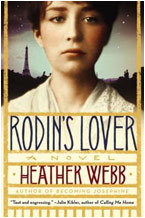 Ever heard an agent or editor say the voice in your novel didn’t grab them? What does that mean, and more importantly, how do you fix it? Pinpointing what makes a novel’s voice alluring can be a difficult aspect to nail down. Many novice writers have trouble understanding the separation of the character’s voice from their own. What is the difference? We’ll dissect both elements in a two part series. So let’s begin with you, the writer.
Ever heard an agent or editor say the voice in your novel didn’t grab them? What does that mean, and more importantly, how do you fix it? Pinpointing what makes a novel’s voice alluring can be a difficult aspect to nail down. Many novice writers have trouble understanding the separation of the character’s voice from their own. What is the difference? We’ll dissect both elements in a two part series. So let’s begin with you, the writer.
AUTHOR’S VOICE is the style that distinguishes one writer from the next. Sandra Brown’s voice is quite different from Sherry Thomas’s, is widely different from C.W. Gortner’s. As readers, we identify with certain authors because of those differences, hence the reason publishing is so subjective. What are these elements?
WHAT MAKES YOUR VOICE UNIQUE
Does the author write rapid fire one-liners that make readers laugh? Are their novels tightly plotted with sharp detailing, or lyrical and flowing with flowery descriptions? These are part of voice. To break it down simply, the elements that make our novels stand out from each other are:
- the tone a writer uses
- types of phrasing
- the way the author evokes emotion from their readers
- how they emphasize plot points
- the types of characters they develop
- how they portray their view of the world through the actions of their characters
Another skill associated with author voice is…
MAKING THE ORDINARY SPARKLE
Authors with well-developed voices have a way of making the most trite object or situation appear fascinating and even twinkly. It’s not just a glass sitting on a table with condensation. It’s the boundary line between an arguing couple, sweating from the heat of their ire. It’s the pizzazz, the je ne sais quoi propelled by inner spirit and emotion that turns the mundane into something worth reading about.
Finally, let’s look at…
FINDING YOUR OWN VOICE
An author’s voice evolves over time as they become more in touch with their inner emotions, as they take in new experiences with a writer’s lens, and also as they learn…
Confidence: Many new writers make the mistake of mimicking an author’s voice they admire. While this may be helpful in the early phases of learning—to hone crafting skills—it can also be detrimental. It’s a delicate dance. Your voice can disappear inside someone else’s. What is needed above all is self-confidence.
It’s important to say these words aloud to someone: I am a writer. The more often you say it, the more the reality of that statement sinks into your brain. Eventually, you don’t feel like a phony anymore. You feel like a bonafide writer, a real artist with your own story to tell. Sure you like those other styles, but you have your OWN. Embrace it.
Read Mindfully: Reading and writing are closely linked. This is something every experienced author will tell you. Read loads of books, both in your genre and outside of it to widen your lens. Analyze the differences in author voice. What sort of techniques do they use that you like? Don’t like? Don’t put reading on the backburner while you’re writing. We never stop learning, and to grow as an author, reading is a must.
Let it Flow: Try free writing—about anything. Transition to free writing with your story in mind. Peel away years of defenses, of being the appropriate and professional at school, work, or online–this person, after all, is not the TRUE YOU.
What are your fears? Your biggest hurts? Your fantasies? These are the experiences that shape our emotional selves. And ultimately, your history shapes your voice. Sound scary? It is a bit, which is why many writers compare sharing their books to being naked in public. We funnel our inner desires, our demons into words, that everyone on the planet can read, applaud, or tear apart. It can be daunting, but unless the writer lets it all hang out, the voice is flat. It evaporates from the page.
Know your Audience: Who will GET your story? Who will sympathize with your protagonist? Your audience doesn’t need to define your voice, but it should certainly have a hand in shaping how you unveil your story elements.
Express Yourself: Madonna said it best. Don’t go for second best, baby. Put yourself to the test. How is your own life story unique? Despite the fact that every plotline has been told a hundred times, each one has a fresh viewpoint, a different set of circumstances. Emphasize these differences—this is where your voice will emerge.
Don’t Over-think it: Don’t try to sound like you, just relax and be natural. Think about one of the first academic papers you ever wrote. You wanted to appear smart so you dumped a bunch of fifty-cent words in the text. But it came off stiff, unnatural and at times probably didn’t even make sense. Don’t force your voice. It will rise to the surface if you listen to your heart.
 Stay tuned for Part Two–honing your characters’ voices!
Stay tuned for Part Two–honing your characters’ voices!
It’s All in the Voice Contest
Post the first 250 words of your novel to your blog, hop around and give feedback to others May 16t and 17th, and submit your final version by midnight, May 18th. Prizes include: an author marketing phone consultation with bestselling, self-published author Leia Shaw, FREE editing of your first 15 pages from moi (a $50 value), free books, and more! (Subscribe so you won’t miss any important posts!) The BIG contest post with all of the info goes up the week of May 6th. Stay tuned!
3 Comments
Join the conversation and post a comment.














Hi!
Should we post here the link to our novel or will you make another post on May 16th and 16th for us to let people know to take a look at our material?
Thanks
Hi Stephanie!
Next week I’ll continue the series of information and then the week of May 6th, I’ll give more information about the contest and the list for sign-ups! 🙂
Thank you!